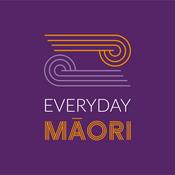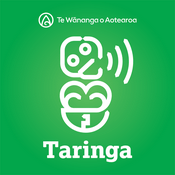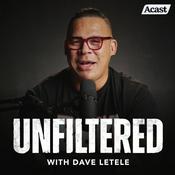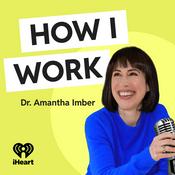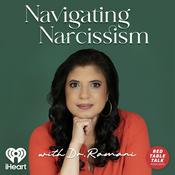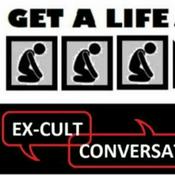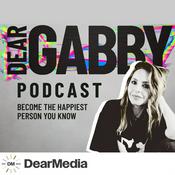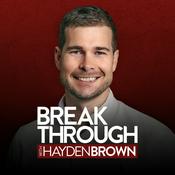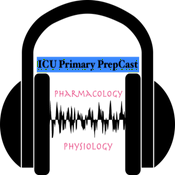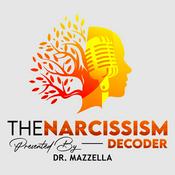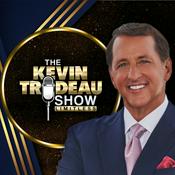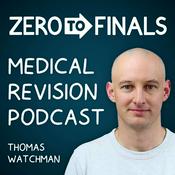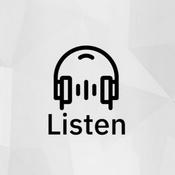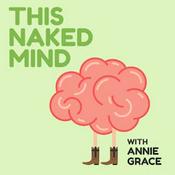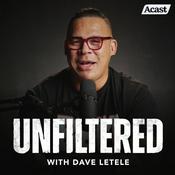Sober Powered: The Neuroscience of Being Sober
Gillian Tietz, MS, CPRC
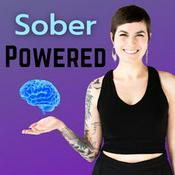
Latest episode
341 episodes
- Sugar cravings in early sobriety make sense. What many of us don’t expect is still needing something sweet months or even years later. In this episode, we’re going to unpack why that happens, what sugar is really doing for your nervous system, and why this phase has less to do with food and more to do with healing.
Work with me:
Community & Meetings: Living a Sober Powered Life https://www.soberpowered.com/membership
Sober coaching https://www.soberpowered.com/sober-coaching
Course
Pickled. Why Moderation is Impossible https://www.soberpowered.com/pickled
Weekly email:
You’ll hear from me on Fridays https://www.soberpowered.com/email
Support the show:
If you enjoyed this episode please consider buying me a coffee to support all the research and effort that goes into this podcast https://www.buymeacoffee.com/soberpowered
Thank you for supporting this show by supporting my sponsors https://www.soberpowered.com/sponsors
Sources are posted on my website
Disclaimer: all of the information described in this podcast is my interpretation of the research combined with my opinion. This is not medical advice.
Learn more about your ad choices. Visit megaphone.fm/adchoices - When I quit drinking, I didn’t realize how emotionally immature I was, or how much alcohol had been doing for me behind the scenes. In this episode, I talk about why removing alcohol can make emotions feel (more) unbearable at first, how years of emotional avoidance catch up to us in sobriety, and why this phase puts people at risk for relapse. We’ll also talk about what emotional sobriety actually means, and why learning to tolerate discomfort is what makes sobriety sustainable.
Work with me:
Community & Meetings: Living a Sober Powered Life https://www.soberpowered.com/membership
Sober coaching https://www.soberpowered.com/sober-coaching
Course
Pickled. Why Moderation is Impossible https://www.soberpowered.com/pickled
Weekly email:
You’ll hear from me on Fridays https://www.soberpowered.com/email
Support the show:
If you enjoyed this episode please consider buying me a coffee to support all the research and effort that goes into this podcast https://www.buymeacoffee.com/soberpowered
Thank you for supporting this show by supporting my sponsors https://www.soberpowered.com/sponsors
Sources are posted on my website
Disclaimer: all of the information described in this podcast is my interpretation of the research combined with my opinion. This is not medical advice.
Learn more about your ad choices. Visit megaphone.fm/adchoices - If you’re sober but still exhausted, foggy, or struggling to think clearly, it’s not random. Early sobriety fatigue has very real causes, from changes in brain energy utilization to sleep disruption and structural recovery. In this episode, I explain what the research actually shows about how the brain heals after alcohol, why recovery happens in layers, and what that means for how you feel right now. Understanding this can change how you experience early sobriety.
Work with me:
Community & Meetings: Living a Sober Powered Life https://www.soberpowered.com/membership
Sober coaching https://www.soberpowered.com/sober-coaching
Course
Pickled. Why Moderation is Impossible https://www.soberpowered.com/pickled
Weekly email:
You’ll hear from me on Fridays https://www.soberpowered.com/email
Support the show:
If you enjoyed this episode please consider buying me a coffee to support all the research and effort that goes into this podcast https://www.buymeacoffee.com/soberpowered
Thank you for supporting this show by supporting my sponsors https://www.soberpowered.com/sponsors
Sources are posted on my website
Disclaimer: all of the information described in this podcast is my interpretation of the research combined with my opinion. This is not medical advice.
Learn more about your ad choices. Visit megaphone.fm/adchoices E308: Does Dry January Actually Change People’s Drinking Habits? What the Research Says
30/1/2026 | 19 mins.A lot of people do Dry January hoping it will reset their relationship with alcohol, and then feel confused or discouraged when it doesn’t. Dry January works, just not in the way most people think it does. If you’ve ever taken a 30, 90, or even year-long break from drinking, felt better, and then slowly slid back into the same patterns, this episode will explain why. We’ll talk about why willpower works during the challenge but fails afterward, why the brain treats breaks as an exception instead of a turning point, and what actually has to change for sobriety to stick. Once you understand the difference between a pause and a rewire, a lot of self-blame starts to fall away.
E296-300 drinking motives and how problem drinking develops/escalates
Work with me:
Community & Meetings: Living a Sober Powered Life https://www.soberpowered.com/membership
Sober coaching https://www.soberpowered.com/sober-coaching
Course
Pickled. Why Moderation is Impossible https://www.soberpowered.com/pickled
Weekly email:
You’ll hear from me on Fridays https://www.soberpowered.com/email
Support the show:
If you enjoyed this episode please consider buying me a coffee to support all the research and effort that goes into this podcast https://www.buymeacoffee.com/soberpowered
Thank you for supporting this show by supporting my sponsors https://www.soberpowered.com/sponsors
Sources are posted on my website
Disclaimer: all of the information described in this podcast is my interpretation of the research combined with my opinion. This is not medical advice.
Learn more about your ad choices. Visit megaphone.fm/adchoices- Did we blast our brains beyond repair with all of our drinking? What if you drank heavily for decades? Are you doomed? In this episode I’m explaining a ton of different studies on brain recovery in sobriety. You’ll learn what to expect as you get more sober time, if our brains make a full recovery, how long it takes to see improvement, how drinking less impacts your brain, and more about how alcohol damages the brain.
Work with me:
Community & Meetings: Living a Sober Powered Life https://www.soberpowered.com/membership
Sober coaching https://www.soberpowered.com/sober-coaching
Course
Pickled. Why Moderation is Impossible https://www.soberpowered.com/pickled
Weekly email:
You’ll hear from me on Fridays https://www.soberpowered.com/email
Support the show:
If you enjoyed this episode please consider buying me a coffee to support all the research and effort that goes into this podcast https://www.buymeacoffee.com/soberpowered
Thank you for supporting this show by supporting my sponsors https://www.soberpowered.com/sponsors
Sources are posted on my website
Disclaimer: all of the information described in this podcast is my interpretation of the research combined with my opinion. This is not medical advice.
Learn more about your ad choices. Visit megaphone.fm/adchoices
More Education podcasts
Trending Education podcasts
About Sober Powered: The Neuroscience of Being Sober
Why do some people stay sober and others relapse back and forth? Getting sober isn’t about restriction, it’s about rewiring your brain to function without intensity, chaos, dopamine spikes, and avoidance.
Hosted by Gill Tietz, a former biochemist turned sober coach, this show dives into the neuroscience of long-term sobriety — why some people relapse, why others stay free, and how to build the kind of brain that can handle life without alcohol.
Each episode blends science, psychology, and real experience to help you strengthen the four pillars of neuro-resilience:
1. Neural Recovery – healing your brain’s reward and stress systems after alcohol.
2. Emotional Regulation – calming reactivity and learning to feel without escaping.
3. Cognitive Rewiring – changing the thought patterns that pull you backward.
4. Behavioral Integration – designing routines and habits that make being sober your default.
Whether you’re newly sober or years in, you’ll learn research-backed tools and mindset shifts so sobriety stops feeling like something you’re trying to want and starts feeling like who you are.
This is hard work. If you want my support, then check out my online sober community or my 1:1 work.
Website: www.soberpowered.com
Podcast websiteListen to Sober Powered: The Neuroscience of Being Sober, The Book Club and many other podcasts from around the world with the radio.net app
Get the free radio.net app
- Stations and podcasts to bookmark
- Stream via Wi-Fi or Bluetooth
- Supports Carplay & Android Auto
- Many other app features
Get the free radio.net app
- Stations and podcasts to bookmark
- Stream via Wi-Fi or Bluetooth
- Supports Carplay & Android Auto
- Many other app features

Sober Powered: The Neuroscience of Being Sober
Scan code,
download the app,
start listening.
download the app,
start listening.






